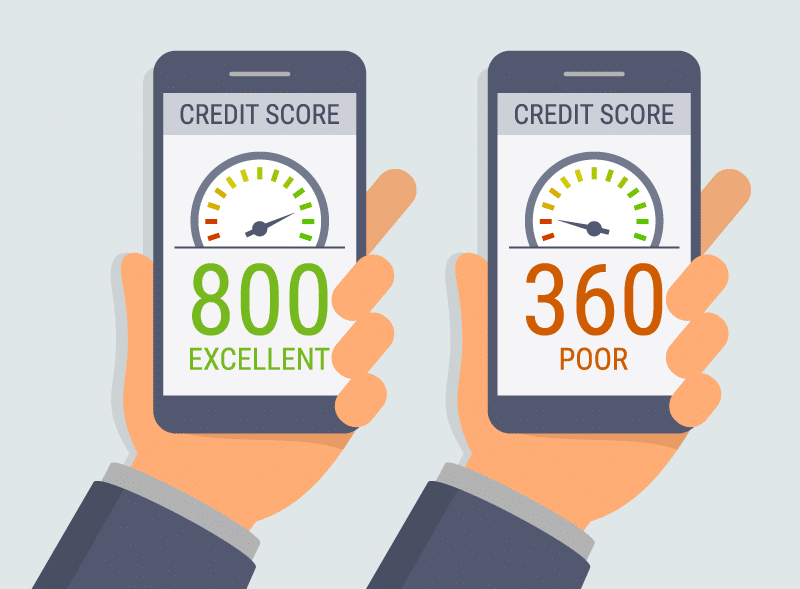Factors that don't affect your credit score

In understanding financial health, the emphasis on credit score factors is paramount. However, it's equally important to demystify common misconceptions about what influences your credit score. This post aims to clarify elements that surprisingly have no impact on your financial rating.
By highlighting these non-factors, we aim to provide a clearer path for consumers to focus on practical steps that genuinely affect their credit health. Awareness of these aspects can lead to better financial decisions and credit management.
Our journey through debunking myths will leave you more empowered to manage your financial health with accurate knowledge about what truly matters in your credit report.
Introduction to Credit Score Factors
Before diving into what doesn't affect your credit score, it's crucial to understand what a credit score is. It's a numerical expression based on a level analysis of a person's credit files, representing the creditworthiness of an individual. Credit score factors are essentially metrics used by lenders to evaluate the risk of lending money or extending credit to consumers.
Credit scores are influenced by various factors, including payment history, credit utilization rate, length of credit history, types of credit in use, and recent credit inquiries. However, several myths and misconceptions about what impacts these scores persist.
Let's break down these myths and shed light on the non-factors.
Income Level
Many believe that their income levels directly influence their credit scores. However, your salary or annual income does not affect your credit rating. Lenders are more interested in your credit management and payment history than how much you earn.
That said, higher income might indirectly impact your score by enabling easier debt management, but it's not a direct factor considered by credit bureaus.
Debit Card Use
Unlike credit cards, how much and how often you use your debit card has no direct impact on your credit score. Debit transactions withdraw money directly from your bank account and do not involve borrowing money or making repayments that could affect your credit history.
Employment History
While employment history may be important when applying for a loan, it's not a factor that credit bureaus use to calculate your credit score. Employers might look at your credit report for reliability, but the details of your job are not part of your credit scoring model.
Saving Accounts and Investments
Your savings account balance and investment portfolio are not considered in your credit score calculation. These assets represent your financial stability but do not impact creditworthiness as they do not involve borrowing money.
Marital Status
Whether you are single, married, or divorced does not directly impact your credit score. Joint accounts with a spouse can affect your score, but your marital status alone is not a factor in calculating credit scores.
Checking Your Own Credit
Checking your own credit report is a responsible financial behavior and does not hurt your credit score. This action is considered a soft inquiry and has no negative impact, unlike hard inquiries made by lenders.
Age, Race, or Gender
Federal law prohibits the consideration of age, race, nationality, or gender in your credit score. These personal characteristics have no bearing on your creditworthiness or financial behavior.
Conclusion
Understanding what does not affect your credit score is vital in focusing on behaviors that truly matter. Your financial health depends on managing the critical credit score factors effectively rather than worrying about these myths.
Concentrate on on-time payments, low credit utilization, and a healthy mix of credit types to improve or maintain an excellent credit score. Lastly, remember, knowledge is power, especially when it comes to managing your financial health.
Armed with the truth about credit score factors, you can navigate the path to better credit with confidence and ease.
{FAQ}
{FAQ_ITEM}
{FAQ_TITULO}Does checking your credit score lower it?{/FAQ_TITULO}
{FAQ_CONTEUDO}No, checking your own credit score is considered a soft inquiry and does not affect your score. It's a good practice to monitor your credit regularly.{/FAQ_CONTEUDO}
{/FAQ_ITEM}
{FAQ_ITEM}
{FAQ_TITULO}Can my income level improve my credit score?{/FAQ_TITULO}
{FAQ_CONTEUDO}While your income doesn't directly impact your credit score, higher income can indirectly improve your score by making it easier to manage debts and payments.{/FAQ_CONTEUDO}
{/FAQ_ITEM}
{FAQ_ITEM}
{FAQ_TITULO}Do savings or checking account balances affect my credit score?{/FAQ_TITULO}
{FAQ_CONTEUDO}No, the balances in your savings or checking accounts do not influence your credit score as they don't involve borrowing or repaying money.{/FAQ_CONTEUDO}
{/FAQ_ITEM}
{/FAQ}

Related